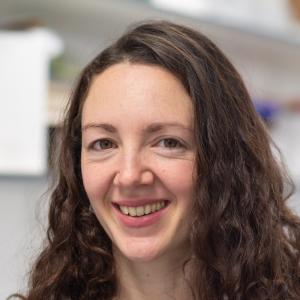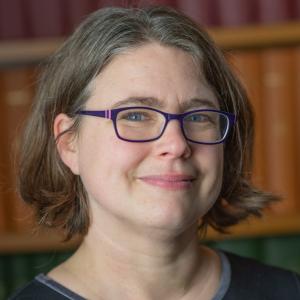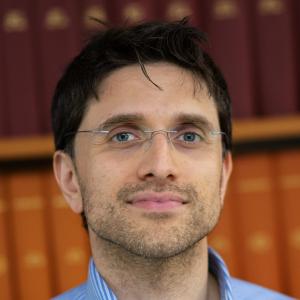Enhancing memory using Transcranial Ultrasound Stimulation and Targeted Memory Reactivation
Project
Enhancing memory using Transcranial Ultrasound Stimulation and Targeted Memory Reactivation
Enhancing memory processing with brain stimulation has wide therapeutic potential in neurological and neuropsychiatric conditions. Non-invasive brain stimulation using devices has not yet been effectively leveraged to modulate memory in the human brain. A key limitation of non-invasive brain stimulation is that devices have, until recently, been limited to targeting superficial brain regions. However, Transcranial Ultrasound Stimulation (TUS) can now be used to precisely and non-invasively manipulate deep-lying neural circuits, including those in the hippocampus that are important for memory. State-of-the-art TUS provides a unique opportunity to establish a cost effective, non-invasive protocol to enhance memory in humans.
The overall goal of this PhD studentship is to design and implement a new TUS protocol to enhance memory. To achieve this, we will draw inspiration from well characterised endogenous neural activity dynamics in the hippocampus that support memory processing. We will combine TUS delivery with Targeted Memory Reactivation (TMR), which involves pairing new learning with specific auditory cues that are then played again during periods of rest or sleep. Together, the new TUS protocol will facilitate endogenous dynamics in the hippocampus, while the TMR will constrain the content of memory reactivation within these endogenous dynamics, to bias the brain to strengthen specific memories relevant for learning. After validating the new TUS/TMR protocol using behavioural measures, we will use ultra-high field Magnetic Resonance Imaging (MRI) to establish the neural consequences of this protocol. We will use machine learning to quantify the effect of hippocampal TUS/TMR on hippocampal memory reactivation (an index for memory ‘replay’). We will further use a next-generation TUS device to directly combine TUS/TMR with MRI.
The project will take place in the Brain Network Dynamics Unit of the Nuffield Department of Clinical Neurosciences and in the Medical Research Council Centre of Research Excellence in Restorative Neural Dynamics (MRC CoRE RND). Students will benefit from the extensive interdisciplinary skills training and personalised career development opportunities available within the Unit and the MRC CoRE RND. Students will receive specialised training in their areas of project research (see below) as well as, for example, in the translation and commercialisation of research, best practice in Open Science, and how to effectively involve and engage patients and the public with research.
The studentship holder will be trained and develop expertise in cutting-edge methods in humans, including application of TUS, TMR, and ultra-high field MRI, including functional MRI and Magnetic Resonance Spectroscopy. You will use Python/Matlab for data analysis with advanced statistical methods, including application of machine learning.
This four-year Ph.D. (D.Phil.) studentship offers three years of full-time tuition fees at the Home rate, and four years of non-taxable stipend at the full-time UKRI rate (including any uplifts announced). Both Home students and International students are eligible to receive this funding package. Please see further details about MRC/UKRI studentships and updated guidance regarding Home and International eligibility. Successful offer-holders who have applied by the December deadline may also be considered for other University of Oxford scholarships.
Interested candidates should possess, or expect to receive, a 1st class or upper 2nd class degree (or equivalent) in a related scientific discipline, e.g. biological or physical sciences, medicine, computer science, engineering, mathematics. Previous experience in neuroscience research is highly desirable.
Candidates must contact the lead project supervisor before submitting an application. To find out more about this studentship, the research project, and the application process, please contact Associate Professor Helen Barron by email on helen.barron@ndcn.ox.ac.uk.
To be considered for this studentship, please submit an application for admission to the D.Phil. in Clinical Neurosciences at the Nuffield Department of Clinical Neurosciences (course code RD_CU1), following the guidance for applications to this course. On the application form, in the section headed ‘Departmental Studentship Applications’, please indicate that you are applying for a studentship and enter the reference code “26NDCN01MRC” into the funding tab.
The closing date for applications is 12.00 midday UK time on Tuesday 2nd December 2025.
Opening in November 2025, the MRC CoRE RND is an exciting team science enterprise that is focused on harnessing the moment-to-moment interactions between nerve cells (‘neural dynamics’) to transform medical device-based therapy for brain conditions. The MRC CoRE RND incorporates discovery research and translational research aligned to empirical neuroscience, computational neuroscience, experimental medicine, and biomedical engineering. The MRC CoRE RND is exceptionally collaborative, involving partners in academia, neurotechnology industry, research charities, and clinical services. It will champion values supporting a positive research culture.
Supervisors
Applications are invited from both Home students and International students to join a multidisciplinary team of researchers studying how cells and circuits in the brain work together to perform computations that support memory, and how perturbations to these computations may explain core symptoms reported in people with neuropsychiatric conditions. This studentship is available from the start of academic year 2026/27, is for 4 years, and will be co-supervised by Associate Professor Helen Barron, Professor Charlotte Stagg and Dr Ashwini Oswal at the MRC Centre of Research Excellence in Restorative Neural Dynamics.


